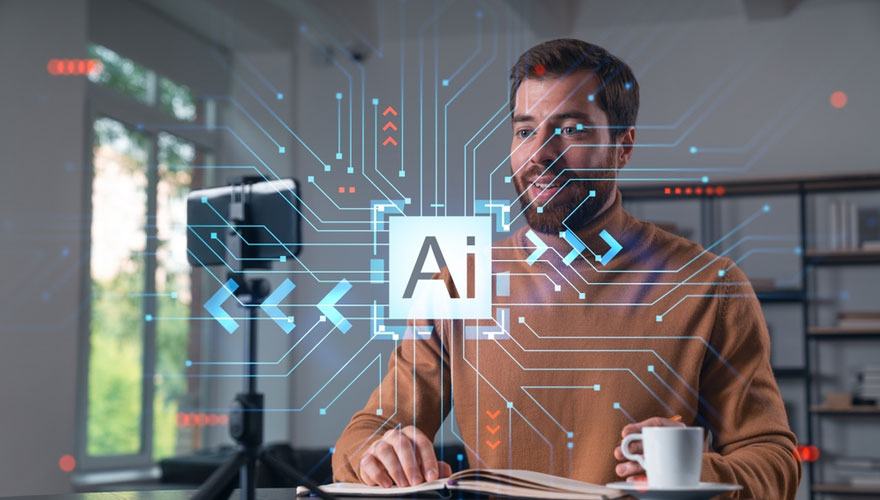In the midst of the digital revolution, the age of artificial intelligence (AI) is transforming the workforce at an unprecedented pace. The demand for skills is evolving rapidly, and the average half-life of skills has dwindled to less than five years, with some tech fields seeing this shrink to just two and a half years. This shift is reshaping the landscape of work, and it’s not just about automating repetitive tasks; AI is encroaching into sophisticated knowledge-based domains, including research, coding, and even content creation. As a result, individuals and organizations must adapt by acquiring new skills to thrive in the AI age.
What Skills Do You Learn in the Age of AI?
In the age of AI, the skillset required for professional success is undergoing a transformation. A host of new skills is emerging as crucial assets for the workforce. These skills encompass the ability to understand, collaborate with, and leverage AI technologies. They include data analysis, machine learning, AI programming, and digital literacy. Equally important are the soft skills such as critical thinking, problem-solving, creativity, and adaptability. These skills not only enable employees to work alongside AI but also distinguish them in an increasingly automated world.
Key Skill for the AI Age: Adaptability
Among the many skills demanded in the AI age, adaptability stands out as the key to navigating this transformative era. The rapid pace of technological advancements requires individuals to constantly evolve and acquire new competencies. Being adaptable means embracing change, learning from it, and leveraging new opportunities that arise. It’s about staying curious, open to experimentation, and ready to pivot when necessary.
Skills for Managers in the AI Age
Leaders and managers face unique challenges in the AI age. To work effectively with AI, they need a blend of technical and soft skills. Technical acumen in AI and data analytics is crucial, as it enables informed decision-making and the ability to harness AI for strategic purposes. But equally important are leadership skills that foster a culture of innovation, collaboration, and continuous learning. Successful managers in the AI age are those who can lead their teams to adapt and thrive in the face of technological disruption.
Skills Needed to Work in AI
Working directly in the field of AI demands a specialized skill set. Proficiency in machine learning, deep learning, natural language processing, and data science is essential. AI professionals need a deep understanding of algorithms, data structures, and programming languages like Python. They should also excel in problem-solving and possess a strong mathematical foundation. But it’s not just about technical prowess; communication skills, the ability to translate technical jargon into actionable insights, and ethical considerations in AI are also vital.
The Reskilling Imperative
To cope with the disruptive forces of AI and automation, many organizations are investing in upskilling and reskilling their workforce. However, upskilling alone won’t suffice in a rapidly changing landscape. Some estimates suggest that millions of workers may need to undergo fundamental reskilling, transitioning to entirely new occupations. This presents a profound societal challenge, requiring individuals not only to acquire new skills but to deploy them in entirely different fields.
Companies have a pivotal role to play in addressing this challenge. Forward-thinking organizations are embracing reskilling as a strategic imperative. It’s no longer just a response to technological disruption; it’s a proactive approach to building a competitive advantage. By reskilling their employees, companies can quickly develop in-house talent that aligns with their strategic objectives, often filling skills gaps that are integral to their success before their competitors do.
Paradigm Shifts in Reskilling
As we explore the emerging paradigm shifts in reskilling, we find that companies are reimagining their approach. They are treating reskilling as a core part of their employee value proposition, encouraging employees to reskill for roles that align with their interests. Companies like Infosys, Vodafone, and Amazon are leading the way, reskilling thousands of employees in various domains, from cybersecurity to machine learning.
Moreover, reskilling is helping companies tap into broader talent pools and attract candidates who wouldn’t traditionally be considered for certain roles. For example, ICICI Bank’s reskilling program prepares graduates from diverse backgrounds for managerial positions. This approach not only enriches the talent pool but also contributes to greater diversity and inclusion.
In conclusion, as the AI age reshapes the world of work, acquiring and honing new skills is essential for both individuals and organizations. Adaptability is the linchpin, and reskilling has become a strategic imperative. Companies that embrace reskilling not only mitigate the impact of technological disruption but also position themselves for a competitive advantage in an era defined by AI and automation.



